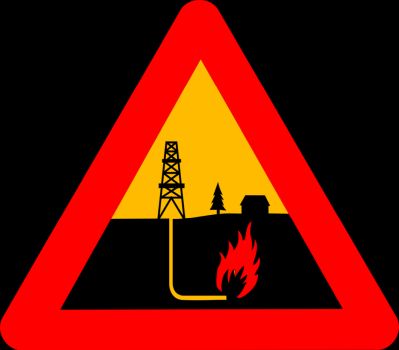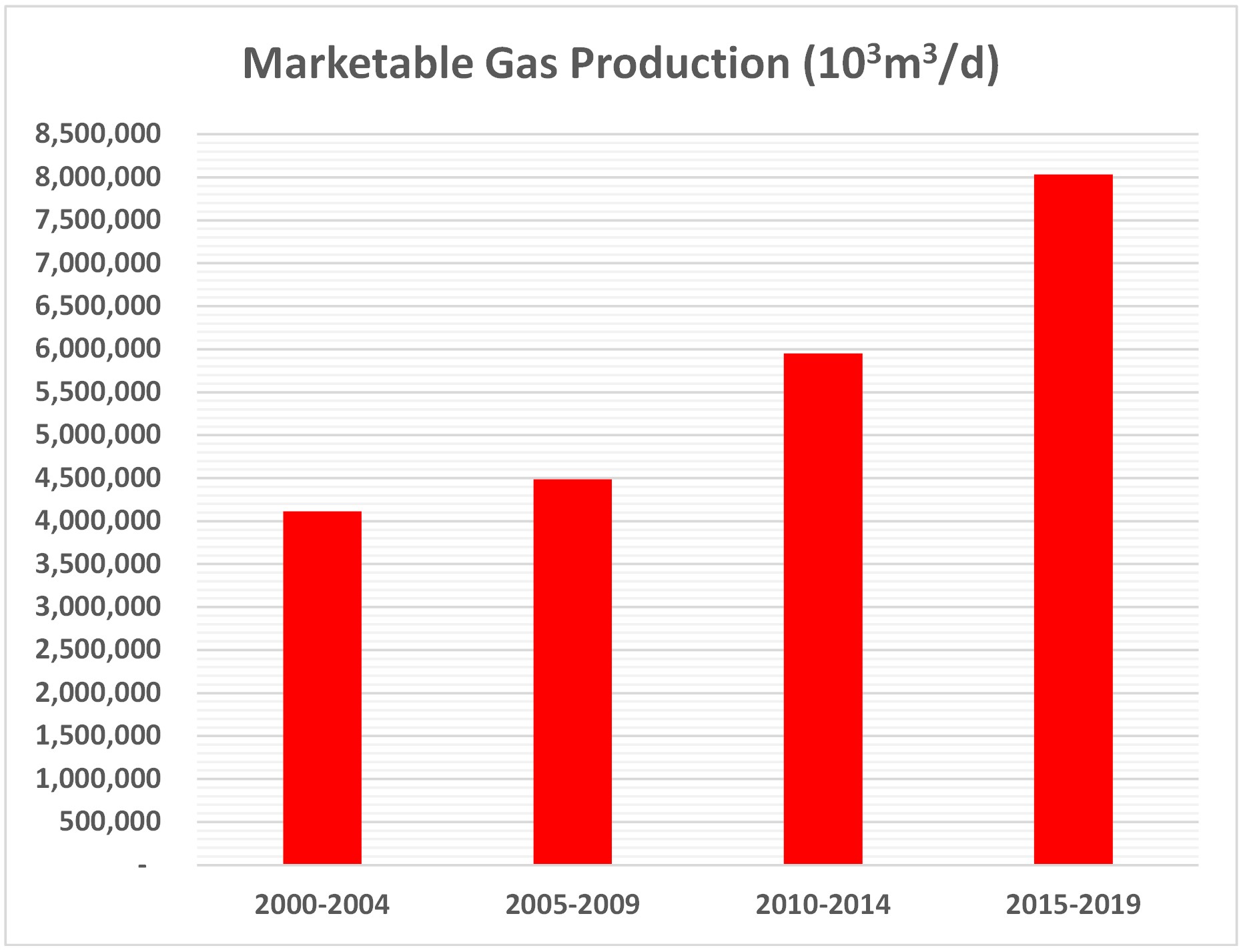The Cost of Shale
Leaky pipelines cannot excuse
The vileness of your touch
As it seeps malevolently
From its ancient, grainy prison;Your eccentric composition
Creating chemical fingerprints
That dance lightly across the
Soft and drifting breeze,Masking your toxic presence
To finger innocuous fields
Of rice and herded scapegoats
With the legacy of your shame.Blinded by the proceeds
That flow like pyrite from
Your snaking tendrils,
We welcome your loose embrace
Like a panacea to a sickness
That we no longer wish to cure.Filling our skies and lungs with
Your filthy expirations until
It is too late.Too late for you to crawl back
With permission of author Sam Illingworth, The Poetry of Science
Underneath the rock from
Which you came.
An audio version of this poem, with accompanying commentary, can be heard here:

The Guardian reported this week that shale gas and oil production may be responsible for a global spike in methane emissions blamed for accelerating the pace of the climate crisis.
The article is based on peer-reviewed work by Dr. Robert Howarth, Professor of Ecology and Environmental Biology at 154 year-old Cornell University, a school generally regarded among the world’s top universities.
Dr. Howarth has been researching the environmental impacts of natural gas production for years and has been referenced in several items at In-Sights. The first mention was in 2011.
Cornell University scientists, including Howarth and fellow Professor Anthony Ingraffea, have been credited with raising scientific and public awareness of fracking and its dangers.
As a result, fossil fuel industry representatives have attacked both the scientists and their science. Of course, these critics say nothing of this:
The precautionary principle denotes a duty to prevent harm, when it is within our power to do so, even when all the evidence is not in. This principle has been codified in several international treaties to which Canada is a signatory.
Canadian Environmental Law Association
British Columbia’s gas industry depends on fracking. In the years following implementation of now common production techniques, producers faced ineffective oversight and little public regulation. Despite a change in government two years ago, not much has changed. Ben Parfitt explains in CAPTURED, British Columbia’s Oil and Gas Commission and the case for reform.
Ben Parfitt concludes:
Too often, the interests of the industry it regulates take precedence over the interests of the public it is also meant to serve.
Although regulation has continued to be inadequate, one thing that has changed is the quantity of natural gas produced in BC. According to Canada’s National Energy Board, gas output is 56% higher in 2019 than in 2011.

Even after years of fracking research, the Cornell scientists acknowledge that more and better data would be helpful. Like sick patients who refuse medical treatment out of fear of what might be said, governments are disinterested in knowledge that undermines current positions. Despite contrary evidence, Canada and its provinces claim that natural gas is a clean energy bridge to future renewables.
Nearly all statements that criticize and reject the conclusions of Dr. Howarth and his colleagues are not peer-reviewed. Most result from industry funded efforts to address negative attitudes toward fossil fuel.
The latest paper from Dr. Howarth is technical but, the conclusion are straight forward:
We conclude that increased methane emissions from fossil fuels likely exceed those from biogenic sources over the past decade (since 2007). The increase in emissions from shale gas (perhaps in combination with those from shale oil) makes up more than half of the total increased fossil-fuel emissions.
That is, the commercialization of shale gas and oil in the 21st century has dramatically increased global methane emissions.
Note that while methane emissions are often referred to as “leaks”, some of the emissions include purposeful venting, including the release of gas during the flowback period immediately following hydraulic fracturing, the rapid release of gas from blowdowns during emergencies but also for routine maintenance on pipelines and compressor stations, and the steadier but more subtle release of gas from storage tanks and compressor stations to safely maintain pressures.
This suggests large opportunities for reducing emissions, but at what cost?
Do large capital investments for rebuilding natural gas infrastructure make economic sense, or would it be better to move towards phasing natural gas out as an energy source and instead invest in a 21st-century energy infrastructure that embraces renewable energy and much more efficient heat and transportation through electrification?
In October 2018, the Intergovernmental Panel on Climate Change issued a special report, responding to the call of the United Nations COP21 negotiations to keep the planet well below 2°C of the pre-industrial baseline (IPCC, 2018).
They noted the need to reduce both carbon dioxide and methane emissions, and they recognized that the climate system responds more quickly to methane: reducing methane emissions offers one of the best routes for immediately slowing the rate of global warming.
Given our finding that natural gas (both shale gas and conventional gas) is responsible for much of the recent increases in methane emissions, we suggest that the best strategy is to move as quickly as possible away from natural gas, reducing both carbon dioxide and methane emissions.
Natural gas is not a bridge fuel.
Finally, in addition to contributing to climate change, methane emissions lead to increased ground-level ozone levels, with significant damage to public health and agriculture.
Based on the social cost of methane emissions of USD 2,700 to USD 6,000 per ton, our baseline estimate for increased emissions from shale gas of 9.4 Tg per year corresponds to damage to public health, agriculture, and the climate of USD 25 billion to USD 55 billion per year for each of the past several years.
This is comparable to the wholesale value for this shale gas over these years.
Editor’s Note: Emphasis and link added
Solar Panels on Farmland Have Huge Electricity-Generating Potential, Yale Environment 360, August 15, 2019:
Putting solar panels on less than 1 percent of the world’s agricultural land could produce enough energy to fulfill global electricity demand, according to a recent study published in the journal Scientific Reports. The research also concludes that solar panels perform more efficiently in cool, breezy, and dry conditions — findings that defy the common practice of installing large solar arrays in deserts.
“Our results indicate that there’s a huge potential for solar and agriculture to work together to provide reliable energy,” said Chad Higgins, an ecological engineer at Oregon State University and senior author of the new study. “There’s an old adage that agriculture can overproduce anything. That’s what we found in electricity, too. It turns out that 8,000 years ago, farmers found the best places to harvest solar energy on Earth.”
The researchers point out that farmers don’t have to make a choice between using land for solar panels or agriculture. Most parcels can be used for both. In fact, previous research from the same scientists found that solar panels can increase yields on dry, unirrigated cropland or pasture…
Categories: Climate Change, Methane Gas




It would currently be very difficult to successfully advance the proposition that mankind deserves to inhabit this planet.
LikeLiked by 1 person
Aaaaaannnnd this weeks Economist magazine warns that illegal logging in the Amazon may reach a tipping point in the next decade where too many logged trees will irreversibly change the jungle to savannah grasslands.
Rising temps(40 c+) will cause remaining old growth forest to dry out and die causing an accelerating feed back loop….
Rare plants, animals , fish….gone.
Corporations take note, the song wasn’t wishful thinking…
“……You don’t know what you got ’til its gone
Pave paradise and put up a parking lot…’
LikeLike
LikeLike
Hej Norm,
Great article! The message deserves to be repeated again and again, until the fracking corps cannot defend their false stance. And until we can vote John Horgan and his corporate Big Gas hacks out. John Jeglum
LikeLike
I can only conclude in short that the Canadian political leadership and scummy team players are morally corrupt cowards who dance to the pleasure of the greedy corporate powerhouse. And shareholders and interested party’s don’t care as long as the money’s rolling in. It’s the hell with tomorrow attitude in this so called advanced first world country. We are so far behind other countries in healthy real clean energy where their governing community truly believes in community for today and the tomorrow’s. All political party’s here are self serving swine and that’s why the push back from the people is going grow and grow until it overwhelms our politicians and kicks them out of their stupor. In the end that is truly a end run of what democracy is all about, if our representitive’s don’t represent the public anymore and become so corrupt minded. It’s the people who have every right to defend it from the bad. Every right.
LikeLike